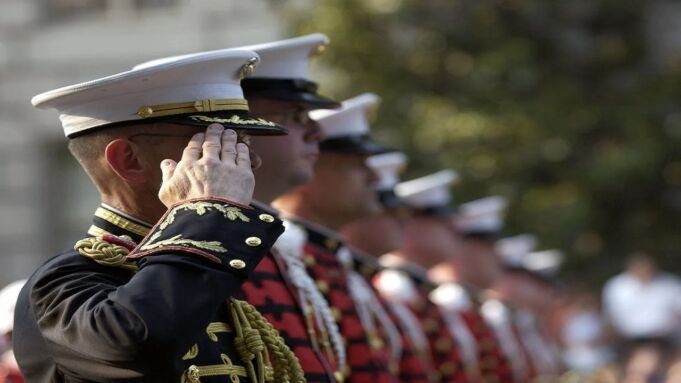North Carolina, a state steeped in history, offers a unique travel experience for those seeking a profound connection with the past. With its rich military heritage, the state unfolds a narrative of courage, sacrifice, and resilience.
In this guide, we will invite you to explore North Carolina’s military history, providing a roadmap to the most immersive and enlightening experiences.
Forts, Battlefields, and Museums
Begin your journey in the Historic Triangle, where forts and battlefields echo with tales of the Revolutionary and Civil Wars. Immerse yourself in the living history exhibits and artifacts that vividly recount the struggles and triumphs of the soldiers who shaped the nation.
In places like Guilford Courthouse National Military Park and Bentonville Battlefield, visitors can walk in the footsteps of Revolutionary and Civil War soldiers. These sites offer immersive reenactments and interpretive programs, bringing history to life. According to NC Historic Sites, the entrance to National Military Park is free, and Bentonville Battlefield costs just $2.
Fayetteville’s Airborne and Special Operations Museum
Dive into the world of airborne forces at Fayetteville’s Airborne and Special Operations Museum. Personal stories, artifacts, and multimedia presentations contribute to a captivating and educational experience.
From early paratroopers to contemporary special operations, this museum offers a comprehensive look at the evolution of airborne warfare. It honors the daring men and women who leaped into the unknown.
The museum features interactive exhibits, including a life-sized C-47 aircraft, providing visitors with a glimpse into the harrowing experiences of airborne soldiers. Encyclopedia Britannica notes that the C-4 operated on all fronts that the United States was fighting on during WWII. It was used to transport freight, and troops, drop paratroopers, pull gliders, and serve as a flying ambulance.
Exploring the USS North Carolina
Board the USS North Carolina in Wilmington, a living testament to the valor of World War II sailors. Tour the decks and corridors of this battleship, gaining insight into the challenges faced by its crew during pivotal naval engagements.
The USS North Carolina allows visitors to explore its nine decks and see firsthand the conditions in which sailors lived and worked. It was used to transport freight, and troops, drop paratroopers, pull gliders, and serve as a flying ambulance.
Camp Lejeune: A Marine Corps Haven
Discover the legacy of Camp Lejeune, a Marine Corps base synonymous with discipline and readiness. Explore its military installations, museums, and memorials, gaining a profound appreciation for the pivotal role played by Marines in defending the nation.
It is essential to acknowledge the Camp Lejeune water contamination incident, a tragic chapter in the base’s history. From the 1950s to the 1980s, service members and their families unknowingly consumed contaminated water, leading to severe health issues. Though the base has taken steps to address the situation, the incident serves as a somber reminder of the sacrifices military families endure.
In response to the devastating health effects, Camp Lejeune residents filed lawsuits seeking justice and compensation. Individuals who have been exposed to polluted water can bring a Camp Lejeune lawsuit under the Camp Lejeune Justice Act of 2022. Veterans, reservists, National Guard members, and civilians exposed for at least 30 days between 1953 and 1987 may qualify for compensation.
TorHoerman Law notes that the lawsuits cover a spectrum of health conditions linked to the contaminants, including cancer, birth defects, neurological diseases, and more. According to ConsumerNotice.org, over 1,000 cases are pending in the Eastern District of North Carolina as of July 2023. The legal landscape continues to evolve, offering hope for those seeking reparation for the profound impact of Camp Lejeune’s water contamination.
Carolinas Aviation Museum
Uncover the aviation history of North Carolina at the Carolinas Aviation Museum in Charlotte. From vintage warplanes to modern jets, this museum showcases the evolution of military aviation, providing a captivating experience for enthusiasts and novices alike.
The Carolinas Aviation Museum boasts an impressive collection, including the “Miracle on the Hudson” exhibit featuring the famous US Airways Flight 1549. Visitors can marvel at the technological advancements in aviation and gain insight into the courage and skill of military aviators throughout history.
North Carolina Veterans Park
Pay homage to the heroes who served the nation at the North Carolina Veterans Park in Fayetteville. The park’s serene landscapes and poignant memorials create a contemplative space to reflect on the sacrifices made by generations of military personnel.
With statues, plaques, and peaceful gardens, the park provides a solemn yet uplifting atmosphere. It serves as a place for quiet contemplation, honoring the courage and commitment of North Carolina’s veterans from various conflicts.
The Freedom Trail: From Albemarle to Raleigh
Follow the Freedom Trail, a historical route connecting Albemarle to Raleigh, highlighting significant military sites. Traverse battlefields, forts, and cemeteries, absorbing the stories of bravery and resilience that define North Carolina’s military heritage.
The Freedom Trail connects key sites, such as the Alamance Battleground and the State Capitol in Raleigh. Each site reveals a unique aspect of North Carolina’s military history, producing an emotionally touching experience for those who walk this historical trail.
Conclusion
North Carolina’s military heritage offers a poignant journey through time, weaving tales of courage and sacrifice. From the Revolutionary War to the present-day Marine Corps legacy, each location tells a story of courage and sacrifice.
As we traverse the Freedom Trail, connecting historical landmarks, it becomes evident that North Carolina’s narrative is not just a collection of sites. It’s a living testament to the resilience and commitment of those who shaped the nation.
Ultimately, its immersive exploration invites us to honor the past, appreciate the present, and contemplate the enduring spirit of North Carolina’s military legacy.















